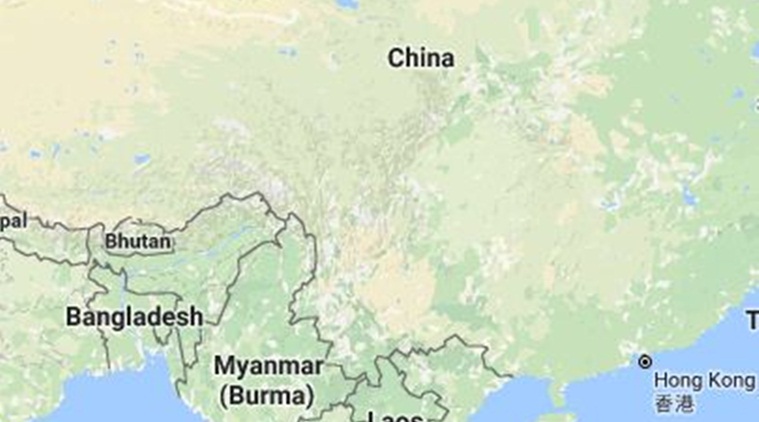Hindustani78
BANNED

- Joined
- Apr 8, 2014
- Messages
- 40,471
- Reaction score
- -47
- Country
- Location
Rebels declare 'unilateral ceasefire' with Myanmar army | Zee News
Yangon: Rebels who have fought Myanmar's army along a rugged border area with China for four months declared a unilateral ceasefire on Thursday, after fighting left scores dead, threatened a nationwide peace pact and spilled over the frontier.
Fighting between government troops and ethnic Chinese rebel fighters has raged in the Kokang region of northern Shan state since early February, causing tens of thousands of people to flee their homes, many into China.
Myanmar's airforce has also dropped bombs on Chinese territory, killing several civilians and infuriating Beijing which issued a stern rebuke and carried out live-fire military drills near the border as a warning.
"We stopped fighting unilaterally since this morning... but we are still holding (weapons ) for self-defence. If they (Myanmar army) shoots, we have to defend ourselves," Htun Myat Linn, a spokesman for the Myanmar Nationalities Democratic Alliance Army (MNDAA), the main insurgent group of the Chinese-speaking Kokang told AFP.
"During four months fighting, about 80 to 90 people were killed from our side. More than 200 people were wounded. We will remain in our positions although the fighting has stopped."
Myanmar's army and government were not immediately reachable for comment on whether they would join the ceasefire in Kokang, a mountainous area which remains cloaked in martial law.
"Fighting has gone on for four months... We worry we are harming the country's general election because of the fighting," Htun Myat Linn added of much-anticipated national polls slated for November.
Myanmar's government is desperate to secure a binding ceasefire with myriad ethnic groups, many of whom have been fighting for decades, ahead of elections later this year.
Kokang rebels were quickly joined by a number of other ethnic insurgent groups and the conflict has threatened to undermine that peace bid.
Kokang has strong bonds with China -- local people speak a Chinese dialect and China's yuan is the common currency -- and tens of thousands of people have crossed the border to flee the fighting.
Beijing was a key backer of Myanmar's military junta while it was under Western sanctions, but President Thein Sein has increased ties with other countries including the United States since launching political reforms in 2011.
The news of the Kokang ceasefire declaration came on the same day as Myanmar's opposition leader Aung San Suu Kyi met Chinese President Xi Jinping in Beijing.
AFP
Yangon: Rebels who have fought Myanmar's army along a rugged border area with China for four months declared a unilateral ceasefire on Thursday, after fighting left scores dead, threatened a nationwide peace pact and spilled over the frontier.
Fighting between government troops and ethnic Chinese rebel fighters has raged in the Kokang region of northern Shan state since early February, causing tens of thousands of people to flee their homes, many into China.
Myanmar's airforce has also dropped bombs on Chinese territory, killing several civilians and infuriating Beijing which issued a stern rebuke and carried out live-fire military drills near the border as a warning.
"We stopped fighting unilaterally since this morning... but we are still holding (weapons ) for self-defence. If they (Myanmar army) shoots, we have to defend ourselves," Htun Myat Linn, a spokesman for the Myanmar Nationalities Democratic Alliance Army (MNDAA), the main insurgent group of the Chinese-speaking Kokang told AFP.
"During four months fighting, about 80 to 90 people were killed from our side. More than 200 people were wounded. We will remain in our positions although the fighting has stopped."
Myanmar's army and government were not immediately reachable for comment on whether they would join the ceasefire in Kokang, a mountainous area which remains cloaked in martial law.
"Fighting has gone on for four months... We worry we are harming the country's general election because of the fighting," Htun Myat Linn added of much-anticipated national polls slated for November.
Myanmar's government is desperate to secure a binding ceasefire with myriad ethnic groups, many of whom have been fighting for decades, ahead of elections later this year.
Kokang rebels were quickly joined by a number of other ethnic insurgent groups and the conflict has threatened to undermine that peace bid.
Kokang has strong bonds with China -- local people speak a Chinese dialect and China's yuan is the common currency -- and tens of thousands of people have crossed the border to flee the fighting.
Beijing was a key backer of Myanmar's military junta while it was under Western sanctions, but President Thein Sein has increased ties with other countries including the United States since launching political reforms in 2011.
The news of the Kokang ceasefire declaration came on the same day as Myanmar's opposition leader Aung San Suu Kyi met Chinese President Xi Jinping in Beijing.
AFP






